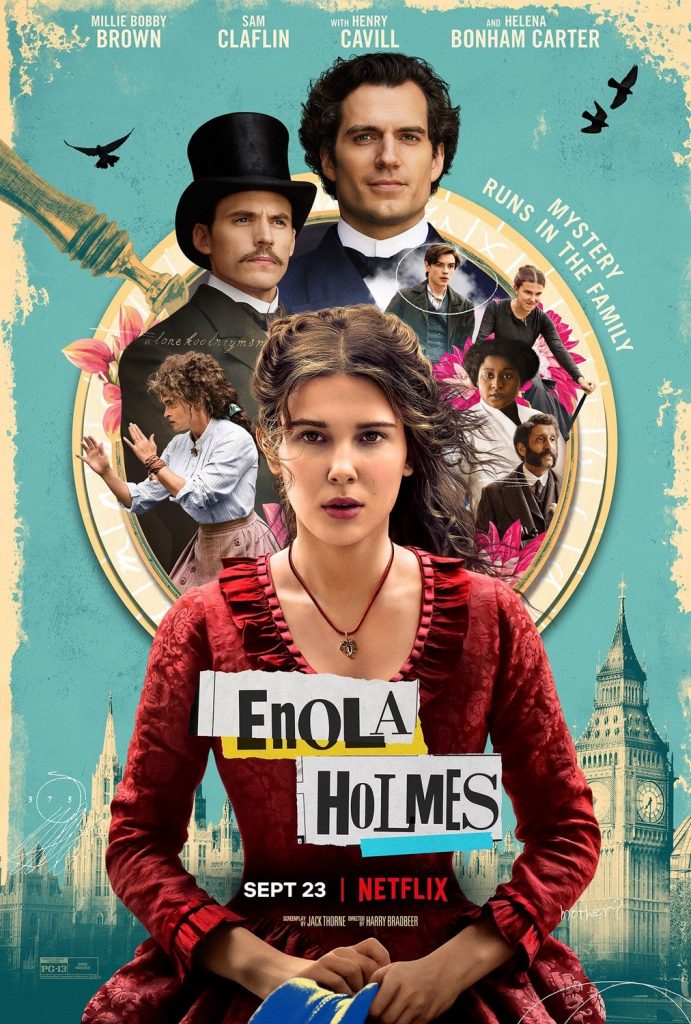
There’s a bit of controversy surrounding Enola Holmes, a new film adaption of author Nancy Springer’s Enola Holmes Mysteries books directed by Harry Bradbeer, but it’s involving one of the supporting characters. The charge from the estate of Sir Arthur Conan Doyle is that Enola’s older brother Sherlock (Henry Cavill) isn’t properly rude or sharp, a bit too warm towards his sister. And yeah, sure, he’s a lot nicer than the one Benedict Cumberbatch portrayed, but it makes sense given this is a pretty chipper and upbeat film. Even with a handful of tense and dramatic moments that certainly help it earn a PG-13 rating, this fits the phrase “high spirited adventure” pretty easily.
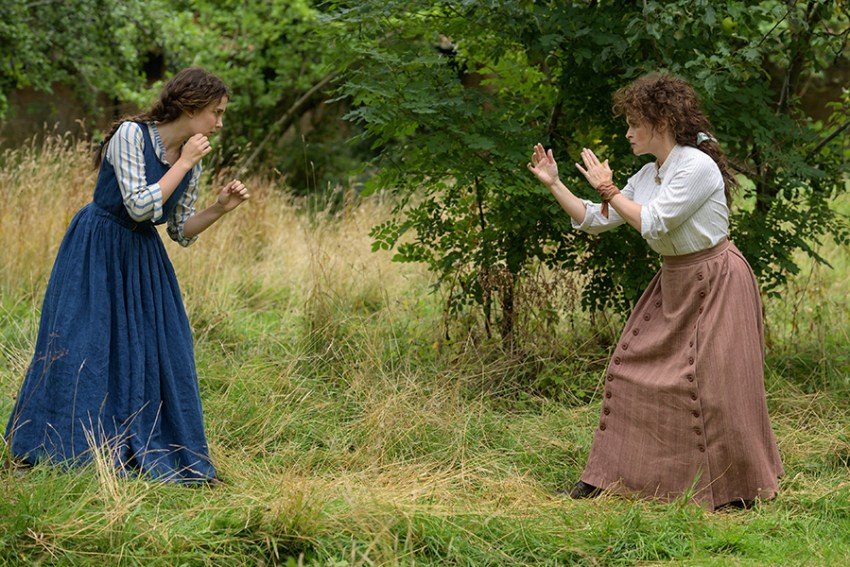
Played by Stranger Things’ Millie Bobby Brown, Enola narrates to the audience her search for her missing mother Eudoria (Helena Bonham Carter), who’s suddenly disappeared on the morning of Enola’s sixteenth birthday. Her presents are actually a series of secret codes that her mother left to supposedly reunite with her, and despite her older brother Mycroft (Sam Claflin) wanting her to settle down in a boarding school, she makes her way to London deciphering the clues.
It’s here where she gets caught up in a conspiracy involving an impending measure on women’s voting rights, and a young, ditzy marquess named Viscount Tewkesbury (Louis Partridge) who’s being pursued by assassins for an unknown reason. Enola sparks up genuine affection for him, but it’s combined with her annoyance at his carefree attitude, and Partridge and Brown have some charming chemistry with each other in these scenes.
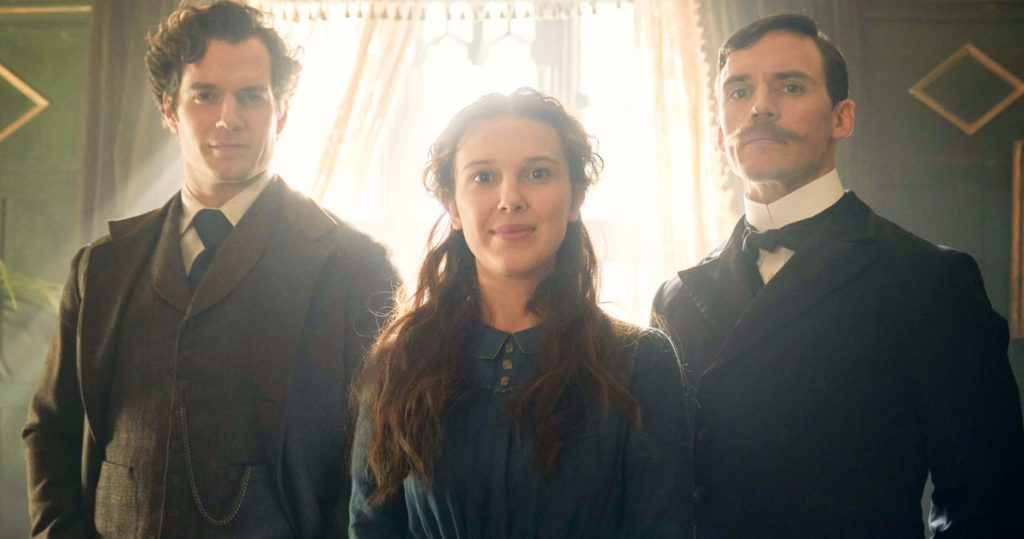
While the mystery plot is entertaining for what it is, this is primarily a backdrop to even more important conflicts in the story, namely the changing social landscape of Victoria-era England and the often dysfunctional dynamic between the Holmes siblings. Cavill’s Sherlock is encouraging of Enola’s detective efforts, though still kind of emotionally distant.
Mycroft is the movie’s conservative voice, a fuddy-duddy who’s fixated with making his little sister into a “proper lady”, of which Enola conventionally defies with her love of science and learning, ju-jitsu practicing (which makes for some pretty entertaining fight scenes, including one with Susie Wokoma as a tea house-running suffragette) and overall outspoken nature for this time period.
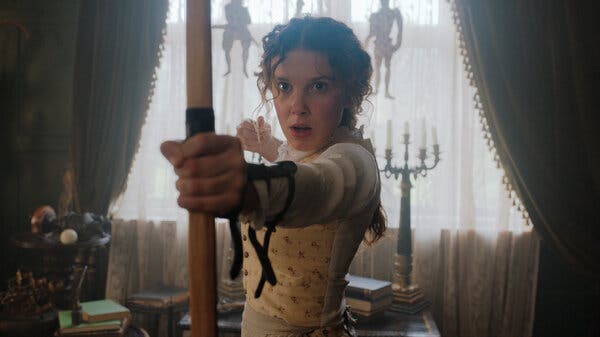
The movie drives home this theme of independence pretty hard, but it’s not too overbearing and always feels like a good lesson for the young audience it’s aimed at. You can expect plenty of scenes when Enola is caught in a difficult spot, only to show the audience an unseen skill of hers. This movie almost has a borderline “Dora the Explorer” aspect to how she interacts with those watching. Yet as much as she’s able to handle herself, the story does allow some good character development.
There are points in the film where it feels like the cases are awkwardly colliding with one another. The hunt for Enola’s mother and the plot against Tewkesbury sometimes feel shoehorned together, so both Enola and I as a viewer were juggling two missions at once. It’s Brown’s charisma in the title role that’s the film’s real selling point, able to believably show both plucky strength and vulnerability when the scene calls for it. For any age she’s incredibly witty, perceptive and clever, using her mother’s clues to travel across England, yet she’s also still learning how to be a sleuth and isn’t above taking advice from Sherlock at points.
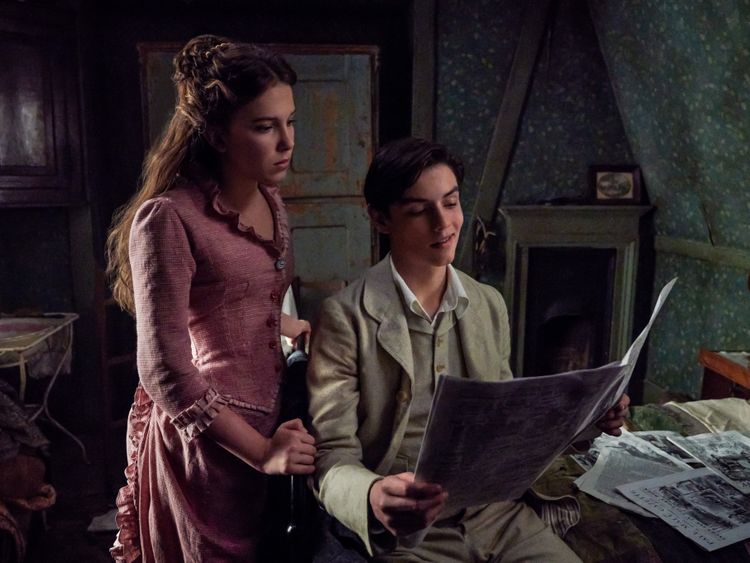
Just as a mystery film, Enola Holmes is decent enough, and maybe a bit longer than it needs to be, so some parts of the movie can drag. But it really works as a kids’ film about a girl trying to find herself, so I can give it a solid recommendation. It’s obviously setting itself up for multiple entries down the road, and while it’s not an earth-shattering tale, this is a good first film for a potential series that encourages its target demographic to dream big. If you’ve had the chance to see it, as always head by FAN’s official pages on Twitter and Facebook to share your opinion!
